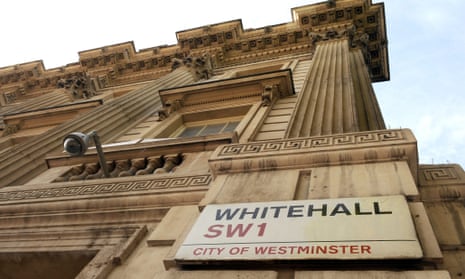If you work for the UK government or a local authority you have probably come across the term purdah. If you don’t, it’s more likely that you’ve never heard of it. The term comes from the Urdu (parda) and Persian (pardah) word meaning veil or curtain and is also used to describe the practice of screening women from men or strangers.
So what does the term have to do with British politics? As Dr Catherine Haddon, constitutional expert at the Institute for Government thinktank, explains, the term purdah relates to the idea of Whitehall drawing the veil over itself and cutting itself off as far as possible. Purdah is the time in central and local government immediately before elections or referendums, when there are specific restrictions on the activity of civil servants.
It covers the pre-general election period from the moment parliament dissolves – 30 March this year – to the day of the election on 7 May.
No official guidance has yet been issued by the Cabinet Office, but the pre-2010 election papers say that during purdah, ministers are still running the country, but must defer making major policy decisions, signing large or contentious procurement contracts, or making other significant long-term commitments until after the election – unless postponement would be detrimental to the national interest or wasteful of public money.
For civil servants, going into purdah means that, while they may answer factual queries, they will keep public statements to a minimum and take great care to avoid doing or saying anything that could be seen as helpful to the governing or opposition parties.
Ian Albert, stakeholder manager on a programme at the Department for Work and Pensions and member of the PCS union’s national executive committee, says: “It’s about ensuring that one government doesn’t make any decisions, which would inherently bind what a future government does without the scrutiny of parliament.”
So what do the restrictions mean in practice? Albert, who has been a civil servant for 35 years, says he can work pretty much as before purdah, unless he has to get ministerial approval for a project. “If it was a new contract or something that is novel or contentious then it might well fall foul of the purdah,” he says.
But how do you know if something is contentious? “You’d know it if you saw it,” he says. “If you look at a contract you’ll know if it has been the subject of some debate, what other parties’ view on it is and if it’s one that a new government might take a different view on.”
You wouldn’t, for instance, seek ministerial approval for a pilot in a particular area, as it could be seen as influencing the voters in that area. And you wouldn’t submit proposals to outsource a public service, as this is always an area for contention, he explains.
Is it possible for a civil servant to unknowingly submit a controversial project for ministerial sign-off and for the minister to approve something he or she should not under purdah rules? “In theory, it is,” Albert says, “but there is a sufficient number of internal approval stages within the department before it even hits the minister’s desk. So the likelihood is very low.”
Another area purdah restrictions affect is departments’ written correspondence with MPs. “If you’re working on a correspondence team it can be a quiet period,” Albert says. If an MP writes to a department on behalf of a constituent, and the department doesn’t get to that letter until after purdah has kicked in, limitations may apply in the way this letter can be answered. The 2010 guidance stated that departments should make particular efforts to ensure that replies are simple, straightforward and give no room for misrepresentation.
The 2010 papers for the first time also included guidance on social media, Haddon says. Civil servants can only use social networking sites within limits anyway, as set out in the civil service code. “It’s more the reiteration that it has a special significance during this time because the things that perhaps seem less clear in their impartiality in the run-up to [election], would be of more significance during this period,” Haddon explains.
While the 2015 guidance is likely to be very similar to that issued in 2010, Haddon notes that one element will be more complicated. If the government loses the election, the 2010 guidance states, all cabinet and ministerial cabinet committee documents issued to ministers should be destroyed. “If one of the parties returned to government and the other one didn’t, on what basis do they retain some documents and not others?” she asks.
All 400,000 civil servants will soon receive an internal memo on pre-election rules. They should be aware of it, Haddon says, but in the majority of cases it doesn’t entirely affect their working lives – other than the fact that civil servants are not supposed to disclose who they’re voting for or ask other people about their voting intentions. DWP’s Albert adds: “Over 90% of civil servants work in operational delivery and for those, life goes on.”
Sign up for your free weekly Guardian Public Leaders newsletter with news and analysis sent direct to you every Thursday. Follow us on Twitter via @Guardianpublic

Comments (…)
Sign in or create your Guardian account to join the discussion